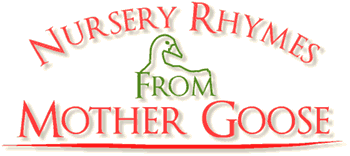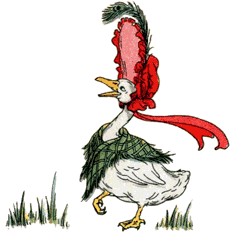Jack and Jill
Jack and Jill went up the hill
To fetch a pail of water.
Jack fell down and broke his crown,
And Jill came tumbling after.
Up Jack got, and home did trot,
As fast as he could caper,
To old Dame Dob, who patched his nob
With vinegar and brown paper.
Like many well-known nursery rhymes, Jack and Jill has invited a wide range of interpretations — some playful, some symbolic, and some tied to real historical events. No explanation is universally accepted, but a few theories continue to circulate.
An Allegory of the Moon
One popular interpretation connects the rhyme to phases of the Moon and its influence on tides. The pair “going up the hill” is seen as symbolic of the rising tide when the Moon waxes; “falling down” represents the ebb that follows.
This idea becomes more interesting when compared to a story in Norse mythology recorded by Icelandic historian Snorri Sturluson in the 13th century. In the tale, a boy named Hjúki (thought to relate to Jack) and a girl named Gil (Jill) are taken up to the Moon while collecting water from a well. Linguistic comparisons suggest the names may relate to old Scandinavian verbs meaning “to heap” and “to reduce,” echoing the waxing and waning of the Moon.
A Tax Reform
Another theory links the rhyme to 17th-century England and a tax dispute under King Charles I. When Parliament blocked his plan to raise taxes on alcohol, he reportedly sidestepped their objections by reducing the standard volume of the jack (½ pint) and gill (¼ pint) instead — keeping the tax the same while shrinking the measure. In this reading, the rhyme becomes quiet political satire.
The French Revolution
A more dramatic historical link suggests that Jack represents King Louis XVI, and Jill his queen, Marie Antoinette. Both were executed during the French Revolution — first the king (Jack fell down), then the queen (and Jill came tumbling after). This theory is compelling to some because of the timing — the rhyme began appearing in print not long after their deaths — but there’s no proof.
Midsummer Night’s Dream
 The rhyme has literary company as well. In Shakespeare’s A Midsummer Night’s Dream, which also plays with lunar symbolism, the lines:
The rhyme has literary company as well. In Shakespeare’s A Midsummer Night’s Dream, which also plays with lunar symbolism, the lines:
When thou wak'st,
Thou tak'st
True delight
In the sight
Of thy former lady's eye;
And the country proverb known,
That every man should take his own,
In your waking shall be shown.
Jack shall have Jill;
Nought shall go ill;
And all shall be well.

1. A simple retelling
Two children go up a hill to fetch water, but Jack falls and hurts himself, and Jill tumbles down after him.
2. The characters
-
Main character: Jack
-
Others mentioned: Jill and Dame Dob (who treats the injury)
3. Setting
Outdoors on a hill, likely near a village where water must be collected.
4. Theme
Mischief, clumsiness, and the playful rhythm of everyday childhood mishaps.
5. Moral
No clear moral — the rhyme is more humorous than instructive, though some interpretations suggest a light caution about being careful (especially on hills).

